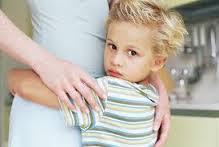Childhood Anxiety Symptoms Parents Should Know
Under normal conditions, anxiety arises in response to a threat or dangerous situation. It’s a healthy response that stems from a person’s survival instinct. When experienced on an ongoing basis, anxiety feelings can hamper one’s ability to function effectively in daily life.
Both adults and children can experience anxiety problems. According to the U. S. National Library of Medicine, childhood represents a core risk phase in which anxiety disorders can take root. For this reason, parents may want to keep an eye out for childhood anxiety symptoms in their children.
What most distinguishes normal behavior from a potential anxiety problem is the presence or absence of an actual threat to a child’s safety or sense of well-being. Childhood anxiety symptoms will persist in the face of no identifiable threat or danger.
Knowing how to identify childhood anxiety symptoms can help in getting a child needed treatment help in a timely manner, as anxiety problems only worsen with time.
We can help you find treatment. Call 888-647-0051 (Who Answers?) toll free today.
Psychological Symptoms
At its core, any form of anxiety stems from brain chemical surges brought on by a child’s response to his or her external environment. In effect, childhood anxiety symptoms derive from thinking patterns that evolve into emotions and from there come out in a child’s behaviors.
Psychological symptoms best reflect the state of a child’s thinking processes. Symptoms may take the form of:
- Listlessness
- Rapid speech patterns
- Problems concentrating
- Inability to stay on task
Childhood anxiety symptoms can range from mild to severe. Severe psychological symptoms can manifest as obsessions, such as obsessing over a parent’s safe or the child’s own safety. At this point, a full-blown anxiety disorder may be at work. Call 888-647-0051 (Who Answers?) for help finding treatment.
Physical Symptoms
Physical childhood anxiety symptoms can take any number of forms depending on the severity of symptoms and the source of a child’s anxiety. Likewise, the source of anxiety feelings can arise from any number of experiences or perceptions a child has.
Physical childhood anxiety symptoms may take the form of:
- Restlessness
- Irritability
- Hyperactivity
- Lack of energy
- Achy muscles
- Sleep problems
- Stomach aches
- Headaches
Ultimately, the more symptoms a child displays the more likely anxiety feelings will impair his or her ability to follow rules at home, perform in the classroom and/or interact with other kids.
Behavioral Symptoms

Anxiety may be the cause of some of your child’s behavior.
According to Duke University, as much as three to five percent of American children suffer from type of anxiety disorder. Once anxiety feelings start to impact a child’s behaviors, there’s likely to be noticeable problems in some area of his or her life.
Behavioral childhood anxiety symptoms include:
- Refusing to go to school
- Behavior problems in the classroom
- Startles easily
- Refusing to leave a parent’s or family member’s side
- Obsessive cleanliness or safety concerns
- Refusing or afraid to be around certain people
While a genetic basis can contribute to the likelihood a child will develop anxiety symptoms, environmental factors usually exert a considerable influence overall. Likewise, chaotic home environments or high conflict environments can definitely affect a child’s overall sense of safety.
Treatment can help your child. Call 888-647-0051 (Who Answers?) to find help today.





